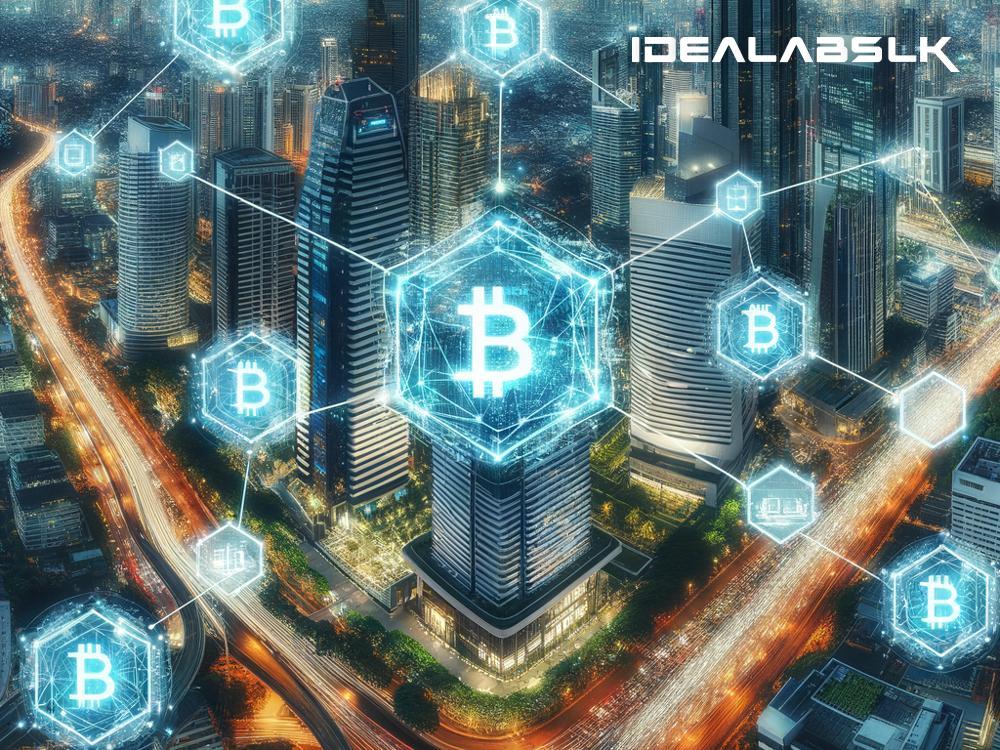Blockchain for Real Estate: Streamlining Cross-Border Real Estate Transactions
In a world that's rapidly moving towards digitalization, the real estate market—one of the oldest sectors of the global economy—is also witnessing a transformative shift. This transformation, fueled by blockchain technology, is making cross-border real estate transactions simpler, faster, and more transparent. Let’s unlock the potential of blockchain in real estate and discover how it's paving the way for an easier and more efficient process for buying and selling properties internationally.
Understanding Blockchain
Before diving into the intricacies of how blockchain is revolutionizing real estate, let’s grasp the basics. Blockchain technology, often associated with cryptocurrencies like Bitcoin, is essentially a digital ledger. This digital ledger records transactions across several computers in such a manner that the registered transactions cannot be altered retroactively. Imagine a digital notebook that everyone can read, but no single person can edit at will. This makes blockchain a powerful tool for ensuring transparency and security in transactions, qualities that are especially valuable in real estate dealings.
The Old vs The New
Traditionally, buying property, especially in a different country, involves a lot of paperwork, numerous middlemen, and a prolonged waiting period. This process is not just time-consuming but also fraught with risks related to fraud, errors in public records, and lack of transparency in transactions. However, blockchain is set to change all this.
Streamlining Transactions with Blockchain
-
Smart Contracts: These are self-executing contracts with the terms of the agreement directly written into lines of code. In the context of real estate, smart contracts can automatically enforce and execute lease agreements, purchase agreements, and more, as soon as conditions are met. This means faster transactions with less human intervention.
-
Tokenization of Assets: Blockchain allows the division of physical assets into tokens that can be sold or bought. Imagine owning a "piece" of a property in Paris or Tokyo without going through the complex process traditionally involved. This not only opens up international real estate markets to more investors but also makes investments more flexible and accessible.
-
Eliminating Middlemen: A significant advantage of blockchain is its potential to eliminate or reduce the need for middlemen—like lawyers, brokers, and banks—thereby reducing fees and the time taken for transactions. While the role of these professionals is crucial, blockchain can streamline the process where their involvement is minimized to essential functions.
-
Enhanced Transparency and Security: Since every transaction on a blockchain is recorded on a network that is virtually tamper-proof, it promotes transparency. Buyers and sellers can view transaction histories, ensuring there are no hidden surprises. Additionally, the encryption technology inherent in blockchain significantly reduces the probability of fraud.
-
Global Access and Efficiency: Blockchain facilitates easier access to international real estate markets. Investors or buyers from different countries can engage in transactions without worrying about the authenticity of documents or the security of payments. This global access, combined with the reduction in time-consuming paper-based processes, makes investing in real estate across borders more efficient than ever before.
Real-life Applications and the Future Ahead
Several pioneering companies and countries are already exploring blockchain to facilitate real estate transactions. For instance, countries like Sweden have tested blockchain for land registries, proving the benefits of such technology in improving efficiency and security in real estate transactions.
As we look towards the future, the potential of blockchain in revolutionizing the real estate industry is immense. However, for widespread adoption, challenges such as regulatory acceptance, technological understanding, and infrastructure development need to be addressed. Furthermore, as technology evolves, so will the methods to counteract its vulnerabilities, and thus, continuous innovation and security measures will be paramount.
Embracing the Future
The integration of blockchain into real estate signifies a shift towards a more transparent, secure, and efficient marketplace, especially for cross-border transactions. While there will be hurdles along the way, the potential benefits for buyers, sellers, investors, and even governments are undeniable. As we embrace this digital transformation, the dream of owning or investing in properties worldwide becomes not just a possibility but a streamlined reality.
In simple terms, blockchain is rewriting the rulebook for real estate transactions, making international buying and selling not just a vision for the future, but a very achievable present. As we continue to navigate this exciting shift, one thing is for sure—blockchain technology holds the key to unlocking a global real estate marketplace that is more accessible and equitable for all.

